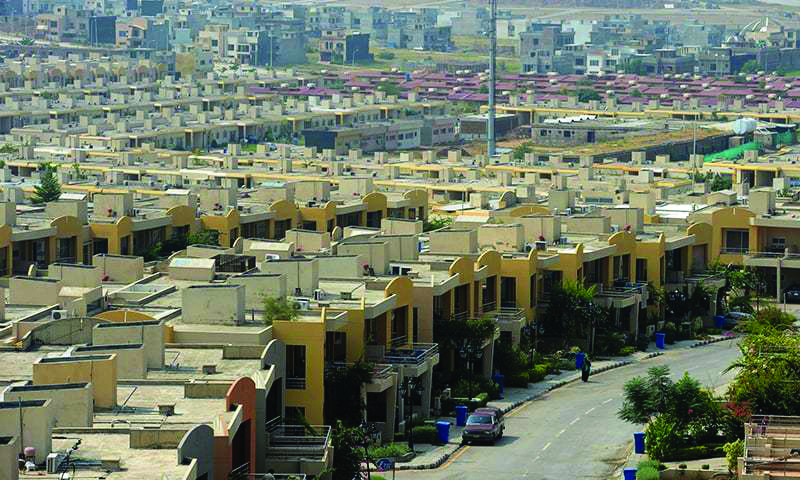PESHAWAR: The green fields in the suburbs of Peshawar which once provided vegetables and fruits to the people of Khyber-Pakhtunkhwa’s (K-P) provincial capital are now turning into colonies and housing societies. An unchecked and unplanned construction is underway in every direction.
According to vendors, the vegetables that Peshawar once produced have now to be bought from other areas. This is the reason why coriander leaves which vegetable vendors once offered for free are now available at Rs20 per bundle, said a shopkeeper.
“Bursanday, a vegetable which once grew in abundance in every pond of the city have now disappeared while cauliflower and turnip which farmers used once to feed their cattle and livestock on are now available at Rs100 per kilogramme at least,” said Aslam, a resident of the old city.
“Once lintels produced in Kurram district were famous for their taste. Now, the people of the province have to rely on the lintels imported from some Central Asian states.
“The rice cultivated by the K-P farmer is no longer marketed and the little that they produce is hardly enough for their own consumption,” he added.
According to an agriculturalist, the orchards of peaches in the Chamkani, a neighborhood of Peshawar, are now close to extinction. The lands which were once famous for their peaches are now turning into housing societies.
However, it is not just the agricultural lands of Peshawar which are shrinking. The farms and orchards of the entire province are now under stress. People are shying away from hardships of agriculture and selling their lands to housing societies.
“The agricultural land is being continuously transformed into residential areas despite the fact that there is a ban in place on use of the agricultural land for any other purposes. The revenue officers and patwaris can easily be bribed into making such transfers,” said an official while requesting anonymity.
According to some experts, this mayhem started when General Pervez Musharraf introduced his local government (LG) system in 2002. Under Musharraf’s LG system, the post of deputy commissioner (DC) was abolished, a move that created a vacuum.
The DC was responsible for all the government land in a district as well as revenue department and the abolishment of the post created a confusion as to who was now responsible for the land.
The post of district coordination officer (DCO) had been created. However, it took some time to understand what the responsibilities of this new official were.
This situation encouraged the land mafia which started occupying not only the government land but also pieces of land belonging to the common people. This “profitable business” created a whole new class dependent on illegal sale and purchase of land.
Proportionally, the K-P has the least agricultural land and yet the biggest business in the province is property business. A vast majority of people are investing in properties and the urban areas of the province are now dotted with signs of realtors and estate agents.
Interestingly, the government departments have declared many housing schemes illegal and yet people have invested billions of rupees in such projects. From time to time, the Peshawar Development Authority (PDA) publishes lists of such illegal projects. But no action is actually taken.
In this situation, the decision of K-P Chief Minister Mahmood Khan to introduce a new legislation with regard to agricultural land is a welcome move. Under the proposed legislation, a provincial council – to be chaired by the CM – will be formed to devise a master plan for the use of land under district councils.
The CM has also ordered relevant authorities to draft urban master plans for six districts of the K-P. However, there is also a need to take steps for promotion of agriculture using the latest technologies.
There is a need not only to protect the agricultural land but also to increase yield. Across the world, the use of hybrid seeds is increasing. There is also a need to protect our traditional seeds and varieties.
The PTI government has also announced the Kissan Cards.
The Kissan Card scheme aims to streamline the administration of various government programmes that support farmers while also making them more transparent. The cards consolidate recipients’ information on a digital platform accessible by all district administrations.
However, this project needs to be seriously implemented as the country’s future depends on agriculture. Pakistan is an agricultural country and it would be a shame if the country continues to rely on imported agricultural produce to meet its domestic demand.



















